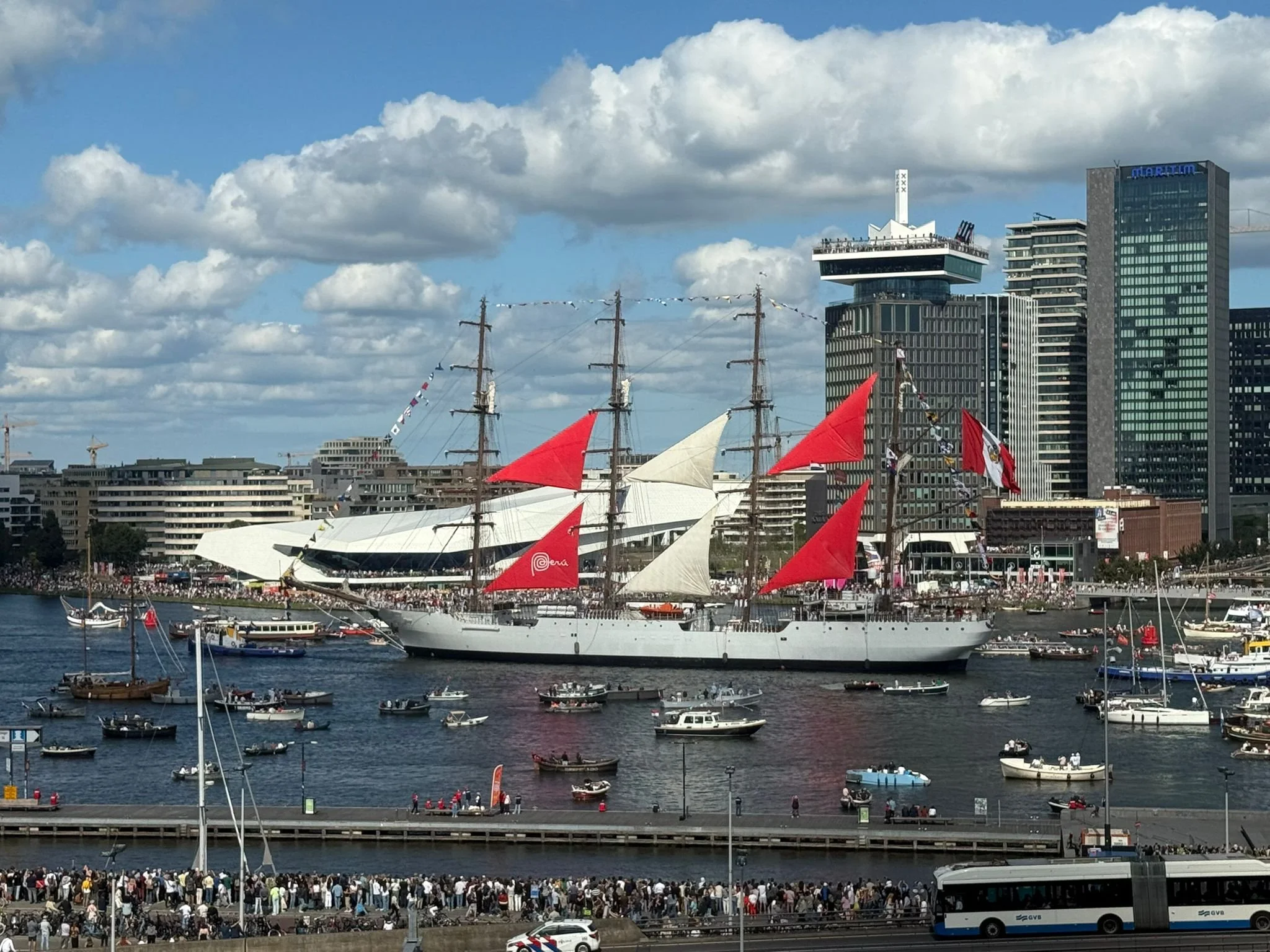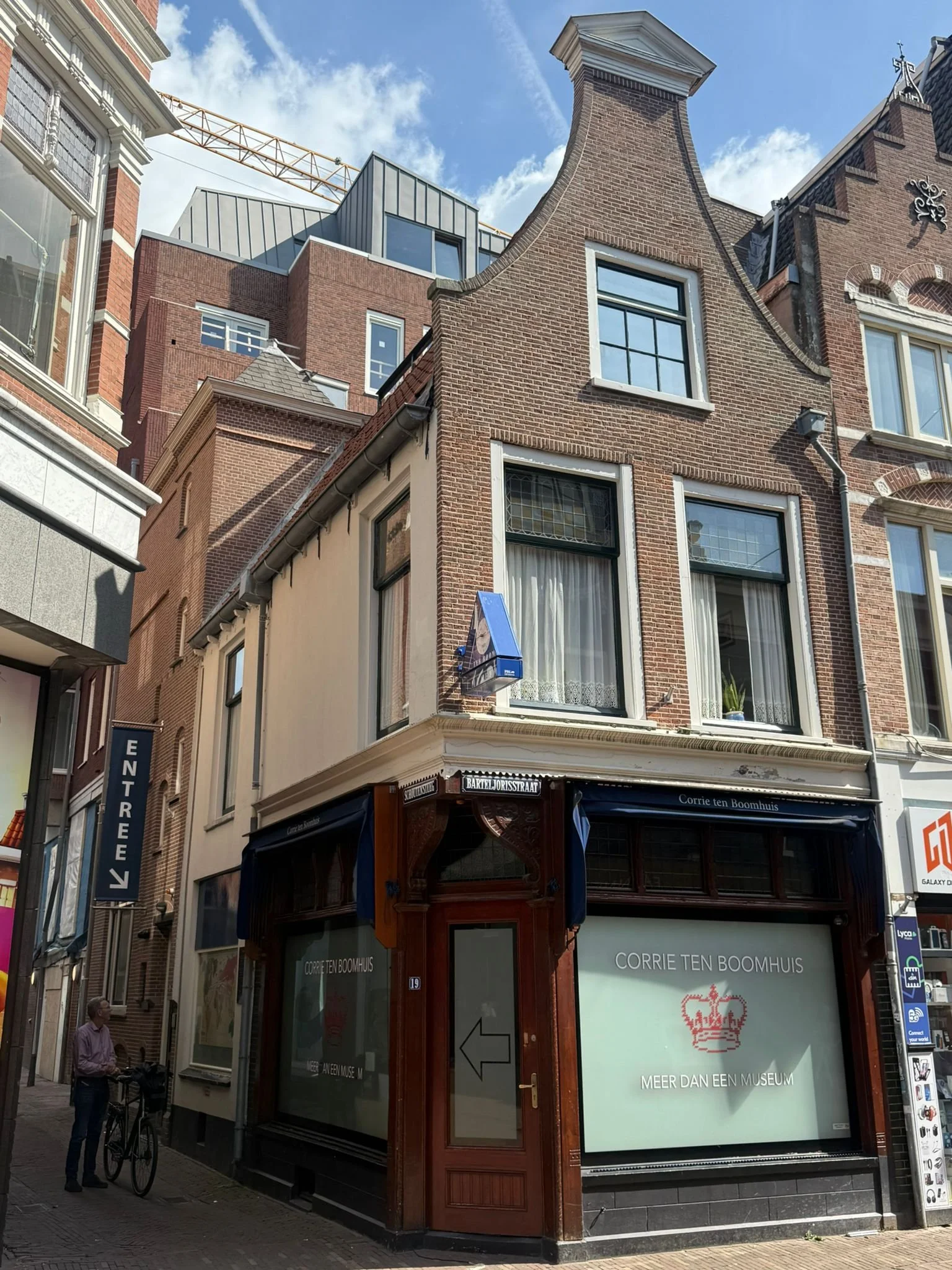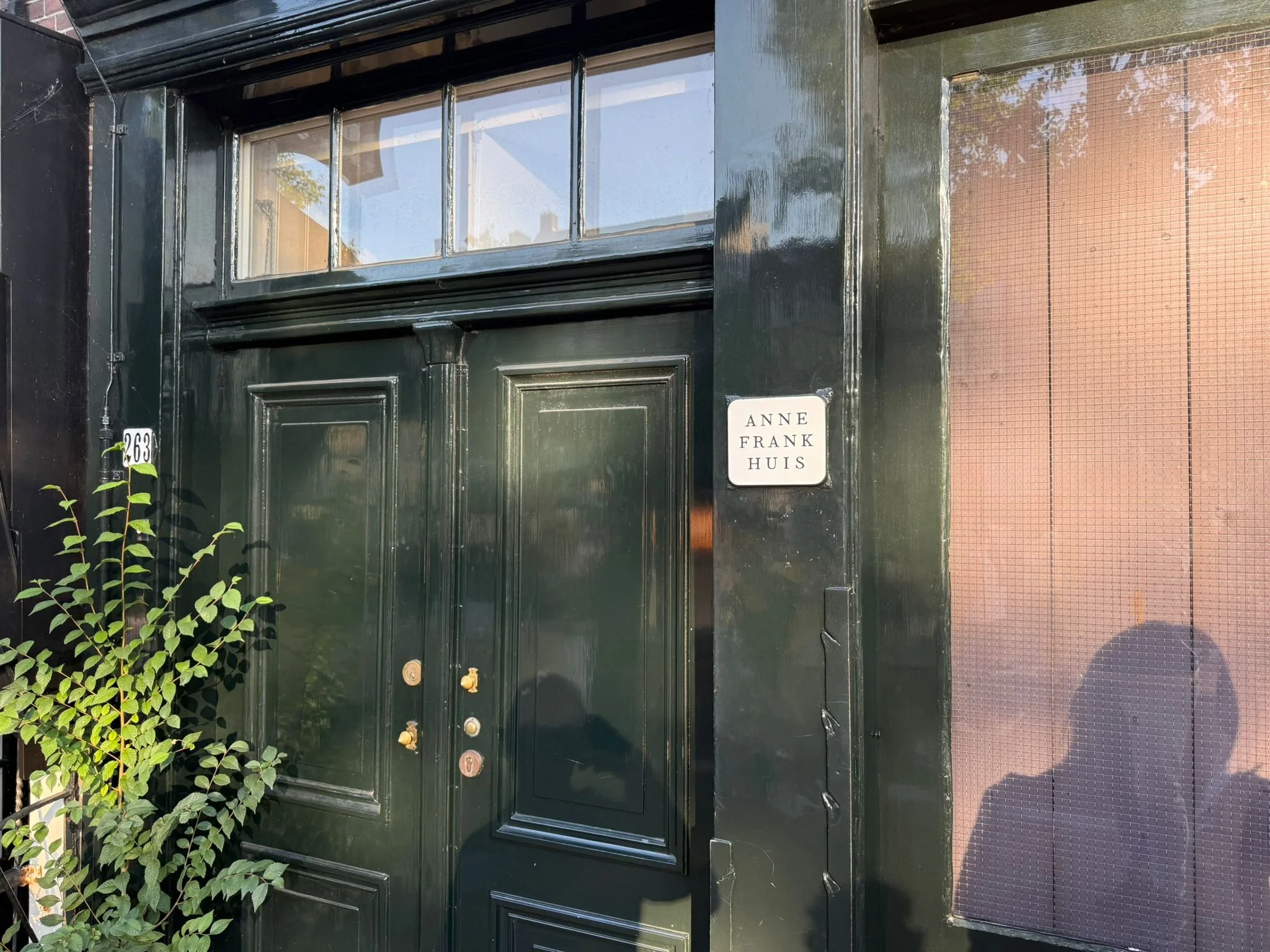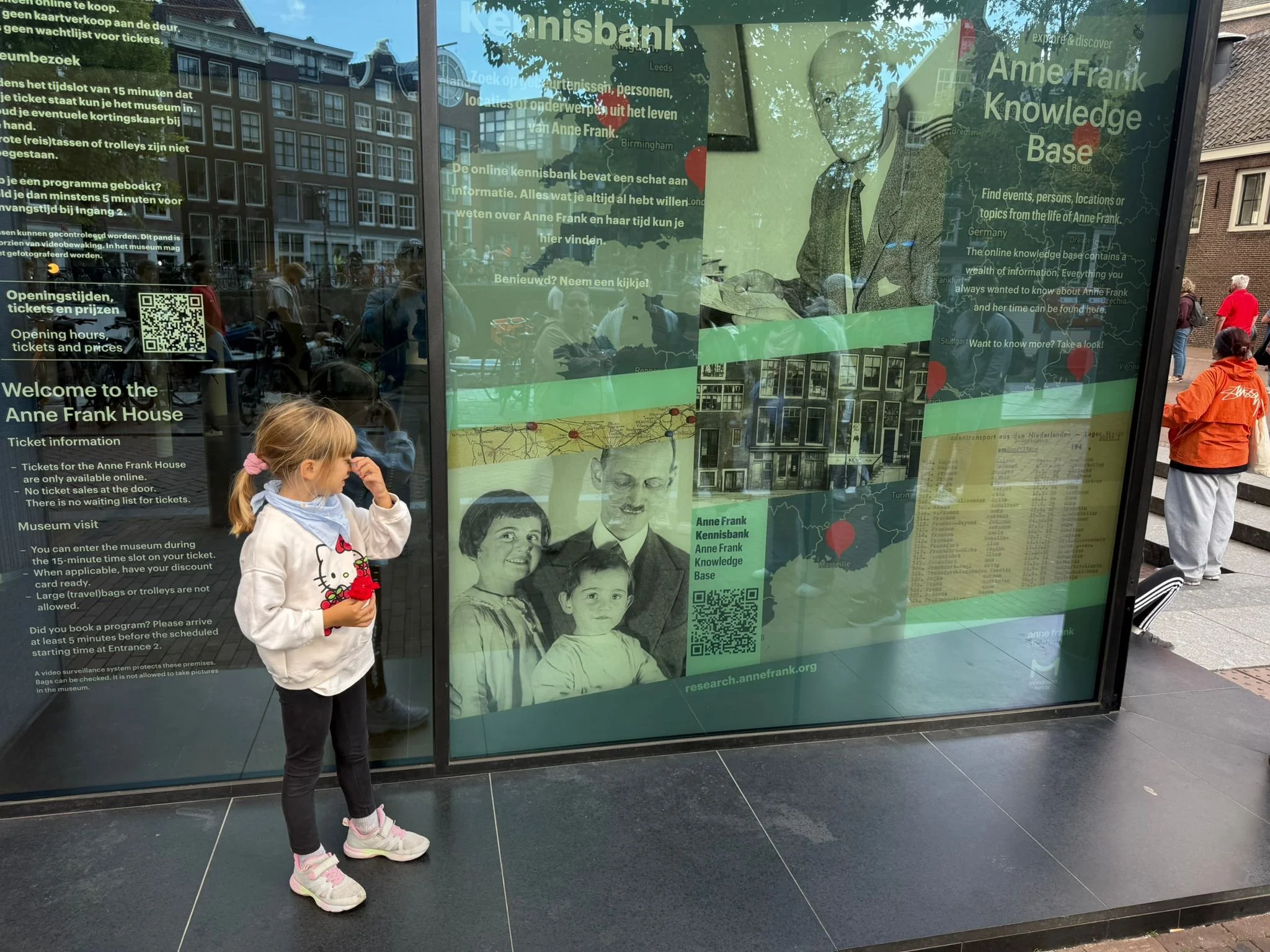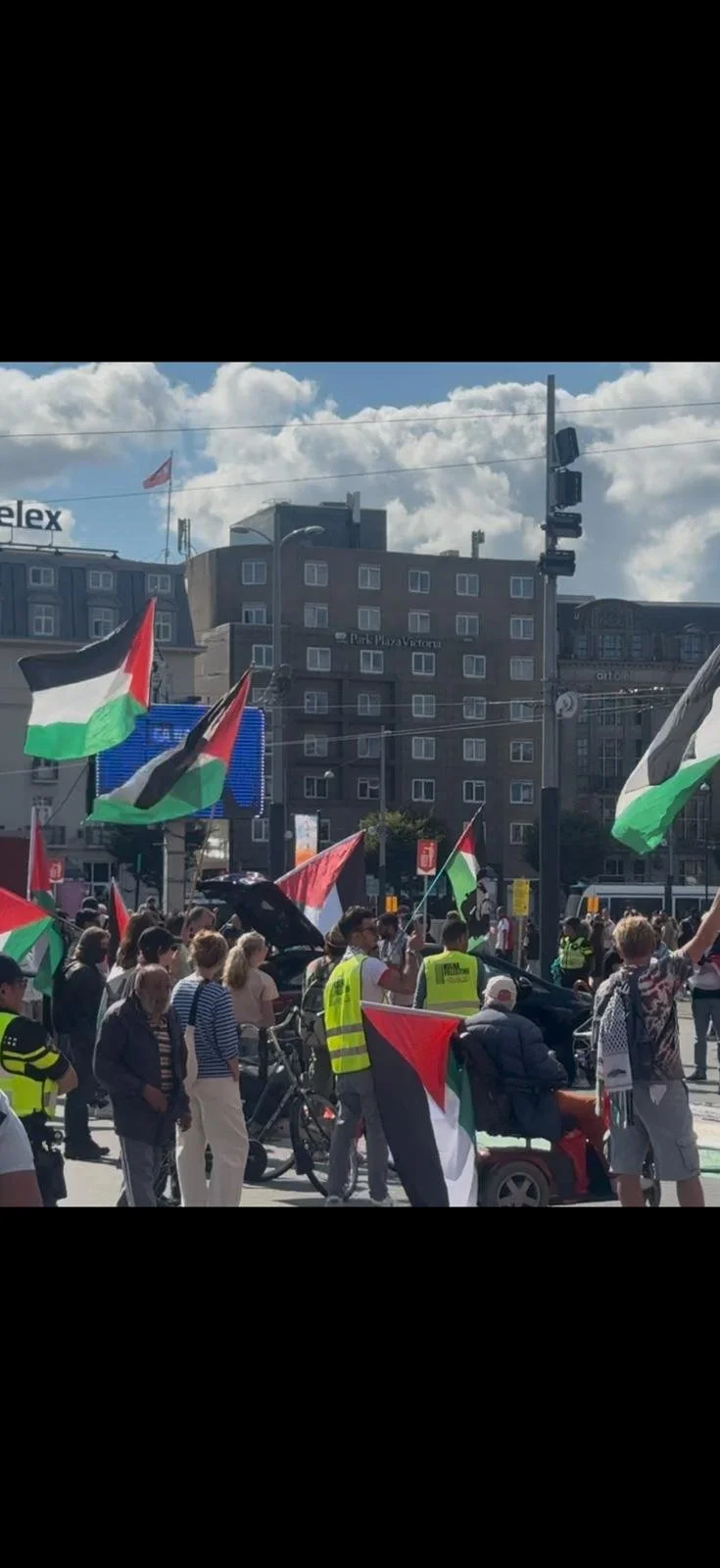Reflections on a recent trip to Amsterdam:
Upon arriving in Amsterdam and checking into my hotel, I decided to walk toward “Sail,” a maritime festival that takes place every four years. This year, the city also marked 750 years of its seafaring history. But before I reached the celebration, I was confronted by another gathering just outside the central train station.
There, a sea of Palestinian flags waved above a crowd shouting, “Free Palestine!” and “F*** Israel!” The man on the loudspeaker—rage in his voice, hatred in his eyes—stirred the people with chants like “Stop Holocaust by Israel” and “Amsterdam says no to genocide.” Standing in that square, I could feel the hostility pulsing through the crowd. What was billed as a “human rights” protest was in reality an eruption of venomous antisemitism.
Later that day, I visited Anne Frank’s house. Anne, a young Jewish girl, fled with her family from Germany to the Netherlands in 1933. But when the Nazis invaded in 1940, the Franks were forced into hiding. In 1944 they were betrayed, arrested, and sent to Auschwitz. Anne later died in another camp of illness. Her short life has become one of the most recognizable testimonies of the Holocaust.
As if the juxtaposition of that riot and Anne’s story wasn’t enough, I noticed what stood towering beside her home: a grand, intact church—untouched during World War II. It was a visual reminder of what I had already heard: that while Jewish families were hunted down, much of the Catholic Church remained tragically silent.
The next day, I traveled to Haarlem to visit the home of Corrie Ten Boom. Here, hope broke through. Corrie and her family were Christians who risked their lives to hide Jews from the Nazis. Most of her family perished in concentration camps—Corrie alone survived. Unlike those who looked the other way, the Ten Booms lived out the prophet Micah’s call: to do justice, love mercy, and walk humbly with God.
History still speaks. On the one hand, you see the silence of powerful institutions; on the other, the courage of true believers. And today, the same spirit of antisemitism reemerges under different flags and slogans. The enemy of God’s people hasn’t changed—only his disguise.
So may it be said of us, like Corrie Ten Boom, that we would stand firm when hatred rises again. Let us not be outwitted by the devil, who still prowls like a roaring lion seeking whom he may devour.
So I’ll conclude with a question for apologetics and theology alike: Why are the Jewish people so persistently persecuted? Ask an atheist, and the pattern remains a mystery. Ask a theologian, and you may hear what Al Mohler has said—that the Jewish people are “the linchpin of eschatology.” In other words, Satan knows what Scripture declares: when the Jewish people turn to their Messiah, the Messiah will turn to them.

